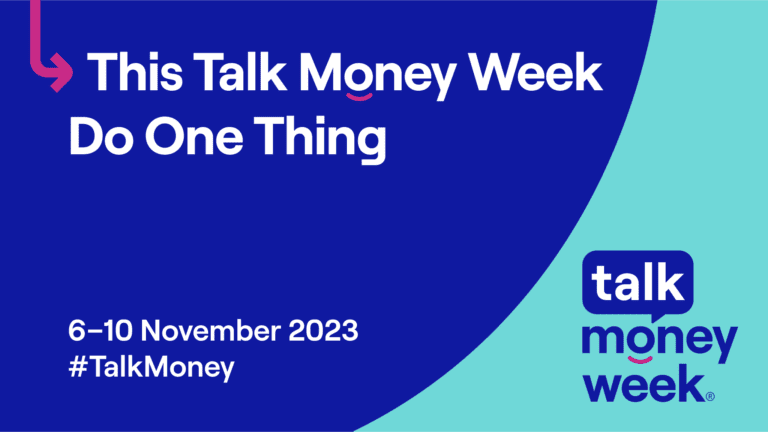
Posted 8 November 2023
BLOG | Do one thing for #TalkMoney Week
Our Corporate Head of Income and Enforcement, Wendy Walker looks at the simple things we can do to improve our financial wellbeing as #TalkMoney week encourages us to Do One Thing.
As a housing association, we see first-hand the impact that financial wellbeing has on people’s lives. When people are struggling financially, it can have a negative impact on their mental health, physical health, and relationships.
That’s why awareness campaigns like #TalkMoney Week are so important. It can be a difficult subject to broach, but it doesn’t have to be daunting. The good news is that there are small steps that everyone can take to improve their financial wellbeing. Here are a few tips:
- Create a budget. This is the first step to understanding where your money is going and making sure that you are spending within your means. There are many different budgeting methods available, so find one that works for you and stick to it.
- Track your spending. Once you have a budget, it is important to track your spending to see where your money is actually going. This can be done manually or using a budgeting app. Once you have a good understanding of your spending habits, you can start to make changes to save more money.
- Set financial goals. What do you want to achieve with your money? Do you want to save for a down payment on a house? Pay off debt? Retire early? Once you know what you want to achieve, you can start to make a plan to get there.
- Cancel unused subscriptions. Look at your bank statement or credit card statement to see what subscriptions you are paying for that you don’t use or need. Cancelling unused subscriptions can save you a significant amount of money each month.
- Shop around for better deals on insurance and other services. Compare prices from different providers to make sure you are getting the best deal on your insurance, internet, cell phone plan, and other services.
- Have a clear-out. We all have items around the home that we no longer want but have you considered that you could make some extra money from these items. From clothes to books, DVDs and other household items, there is a market online for selling or trading in these sorts of items. eBay and Vinted allow you to sell used items online or you can download apps for places like Music Magpie and WeBuyBooks, where you scan the barcode of books and DVDs to find out their value and then parcel these up to be sent off to their warehouse in exchange for a cash payment to your bank account.
- Pay off debt. Debt can be a major financial burden. If you have debt, make a plan to pay it off as quickly as possible. This may mean making extra payments on your debt or looking at ways you can earn extra money.
- Build an emergency fund. An emergency fund is a savings account that you can use to cover unexpected expenses, such as a job loss or a medical emergency. Aim to save at least three to six months of living expenses in your emergency fund.
- Get financial advice. If you need help managing your finances, there are many resources available to you. You can talk to a financial advisor, a credit counsellor, or even get confidential support from one of our Money Support Team.
Some financial advice resources you can find online include:
- MoneyHelper: https://www.moneyhelper.org.uk/
- Citizens Advice: https://www.citizensadvice.org.uk/debt-and-money/
- StepChange: https://www.stepchange.org/
- National Debtline: https://www.nationaldebtline.org/
Improving your financial wellbeing takes time and effort, but it is worth it. By taking small steps, you can improve your financial situation and reduce any stress associated with money worries.